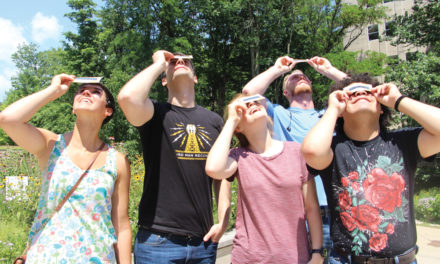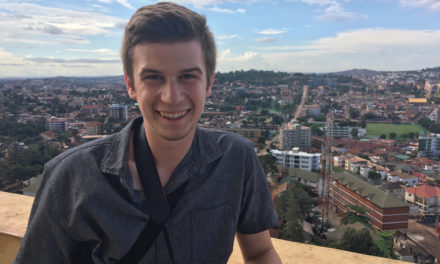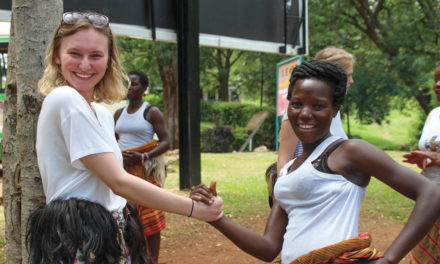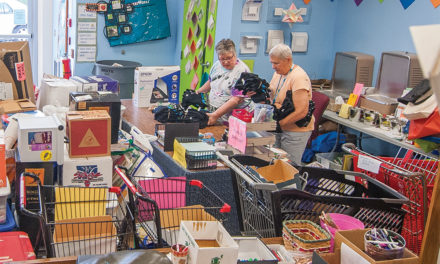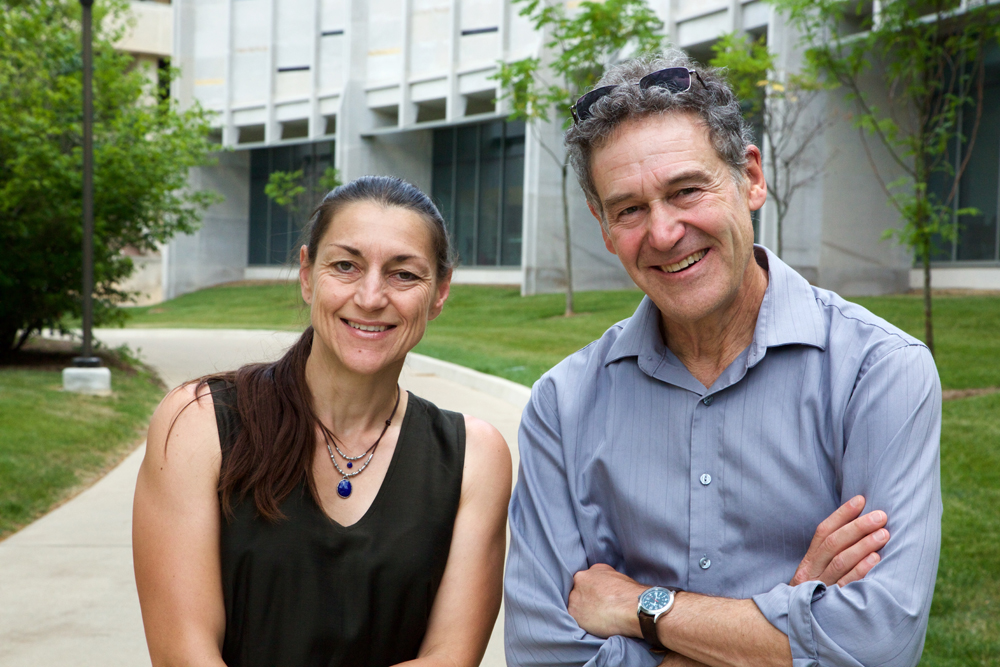
(l-r) Olga Kalentzidou and Michael Hamburger. Photo by Jim Krause
BY PETER DORFMAN
An innovative program initiated by the U.S. Department of State gives students the opportunity to help American diplomats tackle real-life problems. Diplomacy Lab, now in its second year at Indiana University, provides service-learning experiences for students in diverse disciplines that intersect with foreign policy—often in surprising ways.
“Many critical issues are tied to science and technology—public health, climate change, nuclear disarmament,” says Michael Hamburger, an IU geoscience professor who learned about the Diplomacy Lab program in 2015 while working at the State Department in Washington, D.C., on a Jefferson Science Fellowship. “The State Department has broad expertise on global diplomatic issues, but no particular depth in technical issues,” he says. “Diplomacy Lab lets diplomats crowdsource solutions by farming them out to universities.”
Hamburger felt the program, started by former Secretary of State John Kerry, was a good fit for IU’s School of Global and International Studies (SGIS). IU’s Diplomacy Lab offers classes campuswide, but is administered by Hamburger along with Olga Kalentzidou, director of academic initiatives and experiential learning at SGIS.
Kalentzidou taught one of the first Diplomacy Lab courses, focused on food security at a refugee camp in Niger and supporting the Bureau of African
Affairs and the U.S. Agency for International Development (USAID). “They were trying to supplement the refugees’ diets with sprouts,” she says. “Our students studied the proposal and came up with a design and budget, and an implementation plan that made sense for the way USAID manages
a camp.”
Hamburger ran a project whose client was the U.S. Embassy in Vietnam. “My course was on environmental and energy diplomacy,” he explains. “We were tasked to help the embassy develop green energy policy for Vietnam, which is increasingly reliant on imported coal. We came up with specific proposals, but we were asked midway through the semester to reframe the project to focus on how Vietnam’s energy decisions affect U.S. interests—a reflection of the new administration’s ‘America First’ approach. Our final result was a briefing for the ambassador, who was very pleased.”
Trump Administration budget cuts have left the State Department underfunded and undermanned, but IU has commitments of support at least through fall 2017. More information is available at diplomacylab.indiana.edu.


